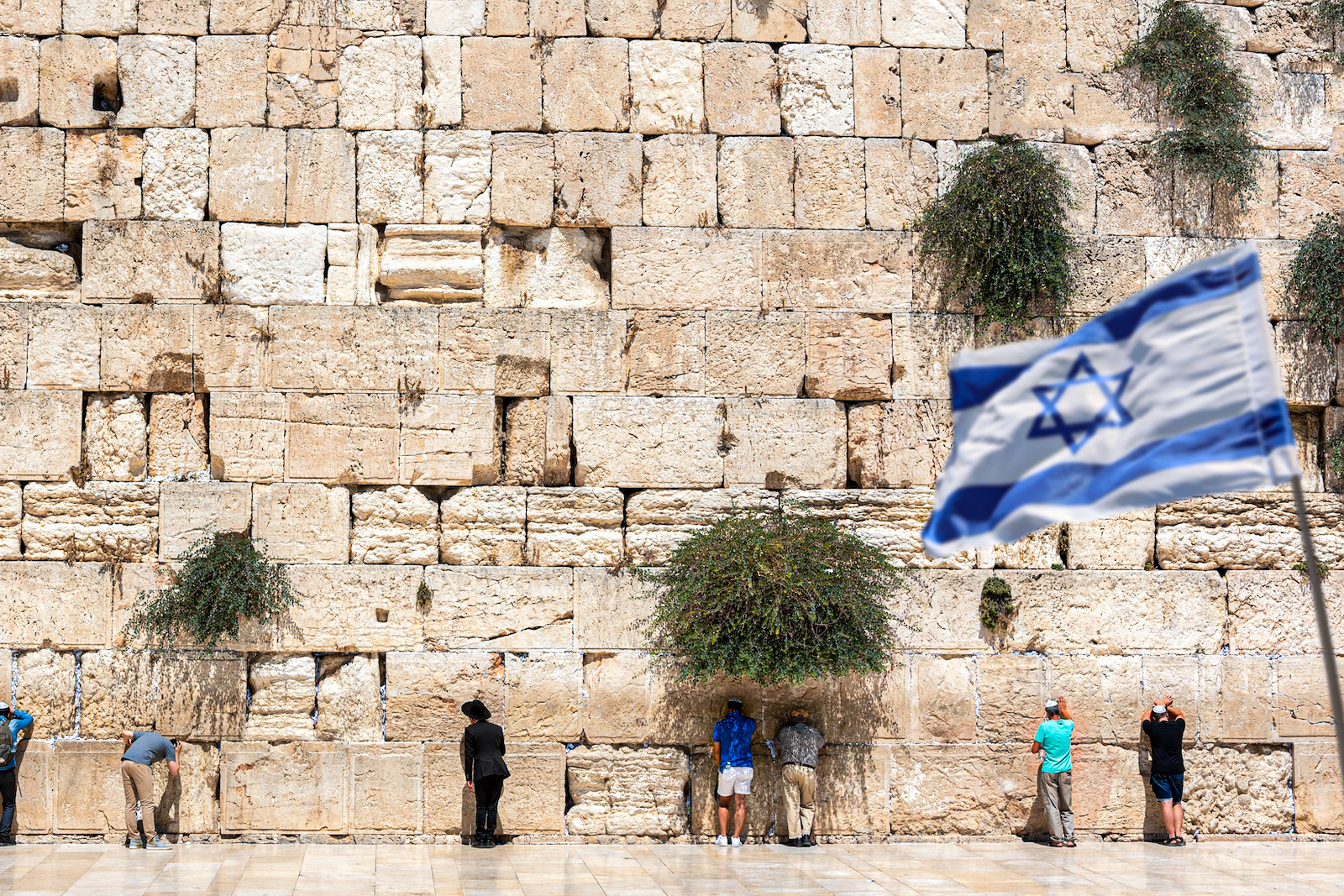
Israeli Illegal Outposts Should Alarm Everyone
There is not much low-hanging policy fruit in the Israeli-Palestinian conflict. Particularly when it comes to West Bank policy, what the Israelis want is very different from what the Palestinians want, and what the right wants is very different from what the left wants. Issues of territory, settlements, and permits are all fraught from the moment they come up for discussion. But there is one ongoing development that should worry everyone on all sides, and that the Israeli, Palestinian, and American governments should be able to come together on for a bevy of reasons, which is the problem of illegal outposts.
There are 127 Israeli settlements in the West Bank that are legal according to Israeli law, meaning that they have gone through the Israeli planning, approval, and permitting process and have mostly been built on state land. These communities are contentious because Israel views them as legal construction on disputed territory, while the Palestinians and most of the world view them as illegal settlements on occupied territory that contravene the Geneva Convention. Every dispute between the U.S. and Israel over new settlement construction approvals and tenders involves these settlements, since the U.S. and Israel view their legitimacy differently and view their impact on a two-state outcome to the Israeli-Palestinian conflict differently.

Illegal settlement outposts, which number approximately 200, are a fundamentally different animal. These are settlements that run the gamut from communities of hundreds of people living in ordinary-looking homes, to a few trailers or hastily constructed cinderblock boxes for a dozen families, to three or four people in what is effectively a campsite with a sheepfold. All of these are illegal under Israeli law, as they have not been approved by Israel, do not have any building permits, and are often on private Palestinian land.
The purpose of these illegal outposts is to thwart any Palestinian ambitions for statehood by disrupting territorial contiguity between Palestinian cities, towns, and villages, which is why you tend to find these outposts adjacent to or surrounding Palestinian communities and along West Bank roads. Two of these outposts—Homesh and Evyatar—have constantly been in the news over the past year and have become causes célèbres for the Israeli settler right, and determining how to deal with them was a significant headache for the just-dissolved Bennett-Lapid government.
The problem of illegal outposts is also about to get worse. Evyatar was established in May 2021 during the fighting between Israel and Hamas, when an organization called Nachala took advantage of the Israeli government and IDF’s distraction to set up a new outpost on private Palestinian land right next to the Palestinian village of Beita, sparking weeks of clashes between the settlers and Palestinians and between the IDF and Palestinians.
Evyatar was evacuated two months later following a deal that was struck between the settlers and Defense Minister Benny Gantz that provided for all of the buildings to remain while the government surveyed the land to determine its status, at which point the settlers would be allowed to go back to any part of Evyatar that was deemed to be on state land. One year later, the situation in Evyatar remains frozen in place to the settlers’ dismay, which has sparked Nachala to announce its intention to establish ten new illegal outposts on July 20 and to heavily recruit Israelis willing to participate in this operation.
No matter how you approach it, illegal outposts are an issue that should alarm everyone other than those who are actively engaged in the movement to create them. For those who care about a political process between Israelis and Palestinians, illegal outposts are specifically designed to make such a process impossible. The motivation behind them is to thwart any future attempt at Palestinian sovereignty by establishing facts on the ground that will be difficult, if not impossible, to reverse, and to then gaslight Israelis into thinking that uprooting even one of them—such as Evyatar—would be an unacceptable and illegitimate use of government power against Israeli civilians.

As thorny a problem as settlements writ large present for figuring out how to get to a viable two-state outcome, illegal outposts make that problem exponentially larger and more complex. Adding even more fuel to the fire is the fact that illegal outposts are established and populated by the most ideological group of national religious settlers, and the ones who are least amenable to any solution that does not end in full Israeli sovereignty over the West Bank and permanent statelessness and lack of citizenship for the Palestinians living there.
Even if you do not care about the Israeli-Palestinian conflict, are not motivated by a fair solution for the Palestinians, and do not support a two-state outcome, illegal outposts should still enrage you. The nature of illegal outposts and the process by which they are created are a deliberate finger in the eye of the Israeli government and Israeli rule of law. It is the textbook definition of a group of people taking the law into their own hands because they do not like the policies of their democratically elected government and have decided that the law and the rules do not apply to them. In the instances when the government attempts to enforce the law that they have violated by dismantling an illegal outpost, they either go back the next day and start all over again or they bring hundreds of demonstrators in an effort to thwart the government’s attempt to abide by its own laws.
For all of the myriad examples of lawlessness and double standards in the West Bank, the illegal outposts may be the most brazen. They constitute a direct challenge to the Israeli state and to any notion of democracy and rule of law, having nothing at all to do with the context of the Israeli-Palestinian conflict or the military occupation of the West Bank.
The U.S. is reluctant to focus on illegal outposts because by doing so, it can be read to imply that the settlements that go through the established Israeli process are unproblematic or legal in American eyes. For the Palestinians, this is even more acute, as they do not view an illegal outpost that went up yesterday as different in kind from a settlement that was established with the blessing of the Israeli government decades ago. These concerns are understandable, but they run the risk of fiddling while Rome burns.
Illegal outposts put American and Palestinian policy goals at risk in a way that ordinary settlements do not given their complete lawlessness, the intentionality of where they are placed, and the speed at which they are multiplying. They also feed into the growing notion that democracy in Israel is hollow, which should worry the U.S. as a supporter and partner of Israel. And unlike trying to tackle settlements overall, around which it would be impossible to build any robust consensus, getting Israelis on board to oppose illegal outposts should not be a heavy lift.
President Joe Biden arrives in Israel this week only days before Nachala is planning its mass illegal outpost spree. This example of complete disregard for Israeli law, Palestinian desires, and U.S. policy preferences should be nipped in the bud. It is a direct challenge to Prime Minister Yair Lapid during his first weeks in office and meant to show Biden that the U.S. can do little beyond idly sitting by. The Biden administration and Lapid government should coordinate to prevent Nachala from openly flouting Israeli law, and it should be the start of an American push to tackle illegal outposts, which are a problem from every angle and can be a source of agreement rather than contention between the U.S. and Israel despite differing views of the ultimate disposition of the West Bank.
This article was originally posted in Ottomans and Zionists.

